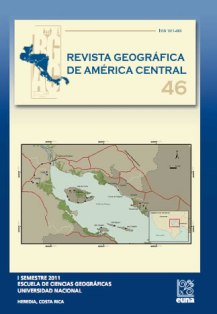DEMOGRAFÍA AMBIENTAL: ¿CÓMO EXPLICAR EL CRECIMIENTO POBLACIONAL A PARTIR DEL ENFOQUE DE LAS FUERZAS MEDIADORAS?
Keywords:
Demografía ambiental, deterioro ambiental, impactos recíprocos, relaciones multicausales, desarrollo sustentable, Environmental demography, environmental damage, reciprocal impact, relationship between population and environmentAbstract
El interés por comprender e interpretar los vínculos entre población y ambiente se constituyó internacionalmente en materia pública a partir de los años sesenta, cuando la posición ambientalista reconoce la necesidad de analizar la presión ejercida por las poblaciones humanas sobre el medio natural. Este campo de estudio se vuelve considerablemente más complejo en la década de 1990, sobresaliendo las discusiones que en torno a dicha problemática plantearon las conferencias internacionales de población y ambiente. El presente estudio analiza el enfoque de las fuerzas mediadoras como perspectiva a partir de la cual se ha abordado la relación entre la dinámica demográfica y ambiental para explicar que el crecimiento poblacional per se no es la causa primera, ni el impacto más importante de la degradación ambiental.
ABSTRACT
Interest in understanding and interpreting the relationship between population and environment became an international public concern at the beginning of the 1960’s when environmentalists recognized the need to analyze the pressure human population puts on the environment. This field turned into a more complex study area in the ‘90’s decade, mostly because of the increase in discussions around the environmental and population problematic. The aim of this research is to analyze the meditational forces as trigger perspectives, from which the demography dynamics and environmentalist relationship have been understood. This perspective suggests that population growth per se is neither the primary cause nor the most important aspect of environmental degradation.
Downloads
How to Cite
Issue
Section
License
Proposed policy for journals offering Open Access
Authors publishing their works in the Journal acknowledge and agree to the following terms:
a) Authors retain the copyrights to their works and guarantee the Journal the right to be the first to publish their works, under the Creative Commons License Attribution-NonCommercial-ShareAlike 4.0 International, CC BY-NC-SA 4.0 International (https://creativecommons.org/licenses/by-nc-sa/4.0/deed.es), which allows others to share works upon complying with the acknowledgment of authorship and mention of the Journal as the original publisher of the work.
b) Authors are permitted to separately establish additional agreements for the non-exclusive distribution of the official edition of the work published in the Journal (for example, authors may desire to place the work in an institutional repository or incorporate it into a book that is to published elsewhere) so long they acknowledgment to recognize the Journal as the original publisher. The aforementioned additional agreements must respect the terms of the non-profit character and sharing philosophy of the original license (CC BY-NC-SA 4.0 International, https://creativecommons.org/licenses/by-nc-sa/4.0/deed.es).
c) Authors are encouraged to archive the post-print or editor/PDF version in Open Access repositories.






 REVGEO is licensed under https://creativecommons.org/licenses/by-nc-sa/4.0/deed.es
REVGEO is licensed under https://creativecommons.org/licenses/by-nc-sa/4.0/deed.es
.svg_4.png)

_(1).png)
_(1)_(1)_(1)_1.png)
(2)(1)(1)(1).png)
